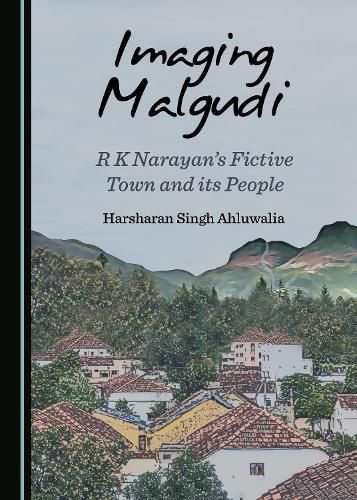Readings Newsletter
Become a Readings Member to make your shopping experience even easier.
Sign in or sign up for free!
You’re not far away from qualifying for FREE standard shipping within Australia
You’ve qualified for FREE standard shipping within Australia
The cart is loading…






R.K. Narayan (1906-2001) is one of the most influential and respected Indian writers. This book is a critical study of Narayan’s novels of the common people, their aspirations and struggles, their pieties and rituals, their myths and superstitions. The fictional town of Malgudi in pre-industrial Southern India is the setting for these timeless stories. The book presents a holistic view of Malgudi and its people from multiple perspectives, such as social, cultural, religious, and economic. In Narayan’s novels, tradition and modernity, fiction and reality, and mythology and history seamlessly merge to craft the narrative. They explore the impact of caste, class, and religion on the individual and the community, as well as the interface between the traditional and the modern, and the past and the present, highlighting the inherent pulls and tensions in society. However, even as Malgudi clings to its conservative past, it opens its doors to urban, educated, and professional men and women from the outside. The book will interest students, teachers, and scholars of literature.
$9.00 standard shipping within Australia
FREE standard shipping within Australia for orders over $100.00
Express & International shipping calculated at checkout
R.K. Narayan (1906-2001) is one of the most influential and respected Indian writers. This book is a critical study of Narayan’s novels of the common people, their aspirations and struggles, their pieties and rituals, their myths and superstitions. The fictional town of Malgudi in pre-industrial Southern India is the setting for these timeless stories. The book presents a holistic view of Malgudi and its people from multiple perspectives, such as social, cultural, religious, and economic. In Narayan’s novels, tradition and modernity, fiction and reality, and mythology and history seamlessly merge to craft the narrative. They explore the impact of caste, class, and religion on the individual and the community, as well as the interface between the traditional and the modern, and the past and the present, highlighting the inherent pulls and tensions in society. However, even as Malgudi clings to its conservative past, it opens its doors to urban, educated, and professional men and women from the outside. The book will interest students, teachers, and scholars of literature.